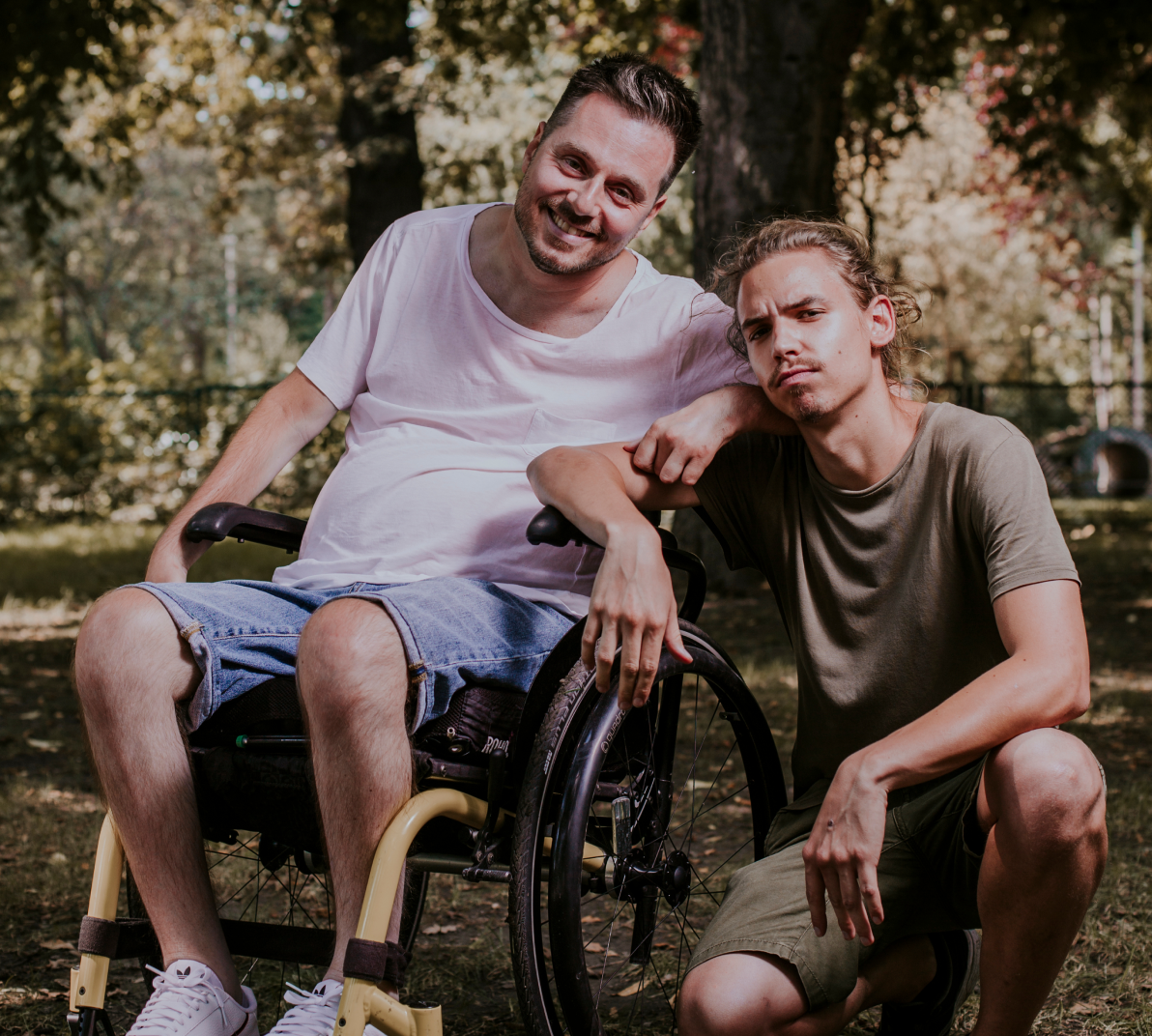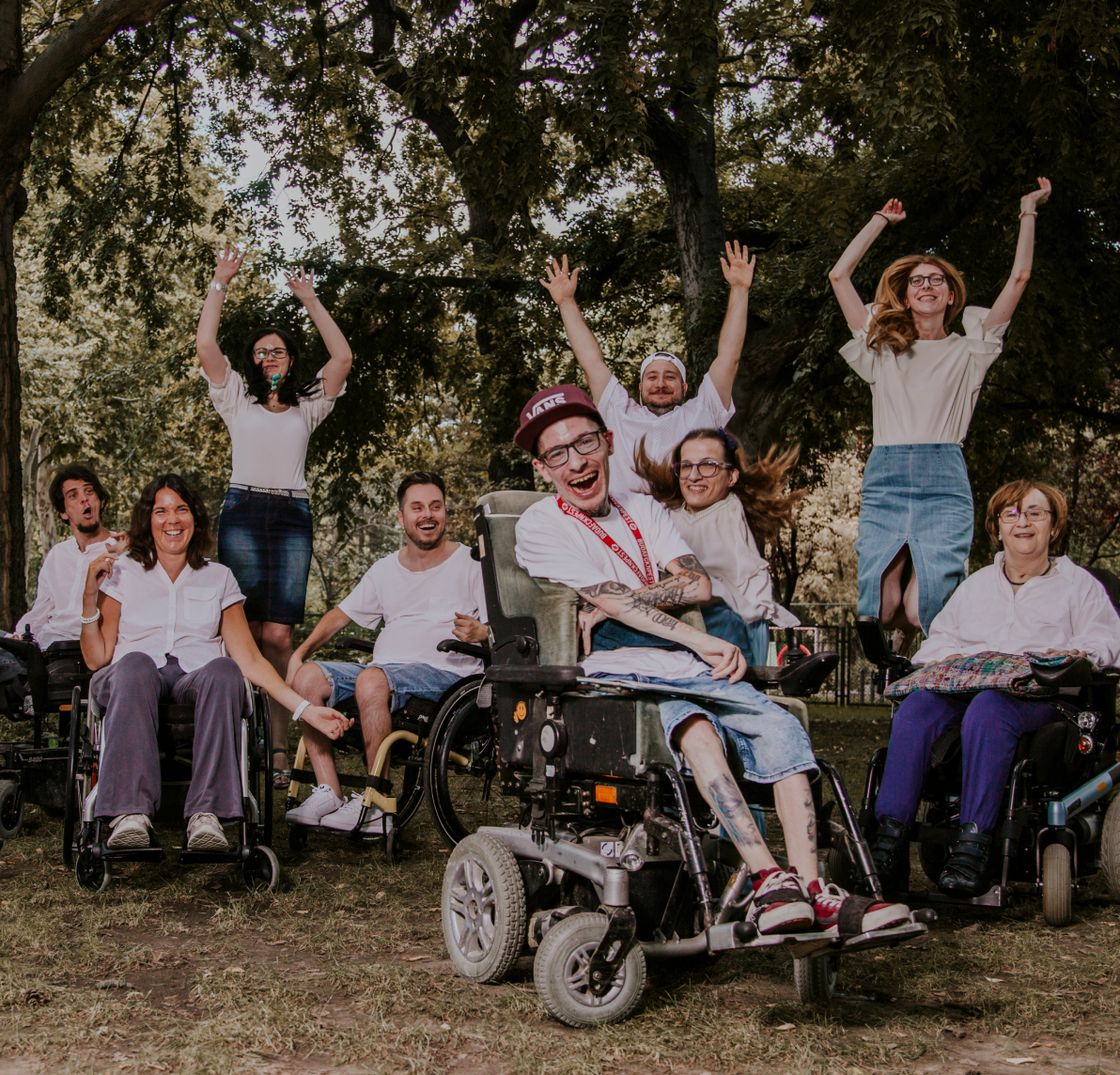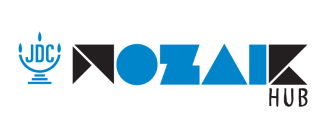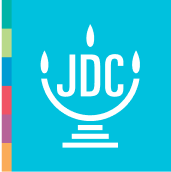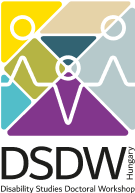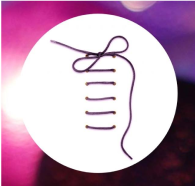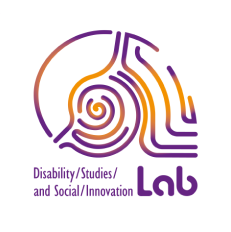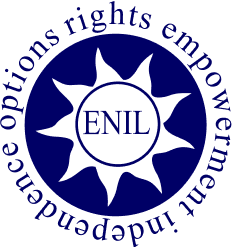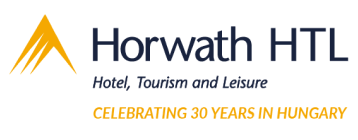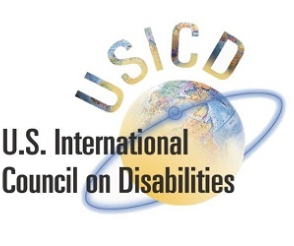Freekey: Foglalt (Taken) short film
Pre-narration
The Freekey project aims to support the independent living of disabled people. One effective way of doing this is through the service of personal assistance. To promote this, a short film entitled “Taken” has been produced.
Characters in the short film:
Bori, a slim, nice-looking, young woman in her late 20s, who wears glasses. Her light brown hair is parted in the middle. She is wearing a white blouse with tiny blue floral prints and long, black stretch trousers.
Bori was born without arms, so what other people do with their hands, she does that with her feet. Of course, there are some activities that she still cannot do on her own, like styling her hair.
Her personal assistant is a young woman with a kind face and of average build. She wears her wavy, red hair in a bun with a thin hairband. She is wearing a light pink T-shirt with a pattern on the front and light blue jeans.
Bori’s room is dominated by light colours. The walls are painted white, her nightstand and bed frame is also white, the bedspread is light pink. The headboard of the bed is decorated with a string light with pink, purple and grey bulbs.
Karcsi is a young man in his early thirties with a kind smile and short, dark brown hair. The wavy locks of his long bangs, which he sweeps to the left side, sometimes fall untidily into his face. He has a small beard on his chin. His clothing: dark blue hooded T-shirt with white linen shorts.
He is a thin man, who has been disabled since he was a child so he uses an electric wheelchair. His involuntary movements limit his independence as it makes simple daily activities such as eating or putting a key in the lock particularly difficult.
His personal assistant is a muscular, strongly built young man. He has short, dark brown hair, a beard and moustache framing his face. He is wearing light grey knee-length trousers and a dark blue T-shirt, over which he later puts a dark blue, long sleeve shirt with white plaid pattern.
Karcsi’s room is dominated by cold colours. His wallpaper is medium grey with white stylised flower pattern. His furniture is beech and black coloured. Blue bed linen and garments in different shades of blue add colour to the environment.
Gergő is a twinkly, slim young man in his 20s. His brown hair is trimmed very short, he wears dark framed glasses. His short-sleeved dark green T-shirt with a pattern in the front reveals tattoos on both his arms and his neck. He is wearing light blue jeans and a white baseball cap.
Geri is a disabled man who has used an electric wheelchair since he was born. He cannot speak, so he uses a so-called letter board to communicate. He uses his hands to show words and sentences letter by letter on this board. That is how he speaks. When he is in company, someone needs to be by his side at all times as Gergő’s voice, so that person can interpret his comments to the others.
His personal assistant is also a muscular, strongly built young man. He has short, light brown hair, as well as a beard and moustache. He is wearing a white, short-sleeved shirt with cheerful coloured pattern, beige knee-length trousers and a light pink baseball cap.
In Geri’s room, the white walls surround a colourful room interior. The tapestry next to the bed seems to be a scene from “One Thousand and One Nights”. On the brightly coloured carpet two riders, dressed in burnoose, flee into the night, leaving behind the city with its grandiose oriental buildings.
The café, where Bori, Karcsi, Geri and their helpers meet, is located under the arches of the houses of Madách Square.
Logos appearing at the end of the film:
The logo of JDC Foundation Hungary: a stylised menorah and the acronym JDC appear in white on a square turquoise background. The bottom of the candle holder has three horizontal lines, which become shorter and shorter as we go upwards. On this rest, like a smiling mouth, the arches of the two outermost candlesticks, with one flame at each end of the arches. This arch surrounds the letters JDC, with a third flame above the letter “D”. The left side of the square is bordered vertically by a thin coloured line of orange, purple, red, blue, yellow and green.
The logo of the Mozaik Jewish Community Hub: The square emblem is white with the words “MOZAIK” in all capital letters. The first “m” letter and the last “k” letter are composed of two black triangles. The other letters are composed of blue plane figures. The “o” is a circle, the “z” is two rectangles placed horizontally one above the other, the “a” is a triangle and the “i” is a rectangle standing on its shorter side. Below the Mozaik sign, in half the size of the lettering, is the caption with capitals “Zsidó Közösségi Hub” (Jewish Community Hub), also in blue.
Audionarrator: Csilla Fekete
Consultants: Melinda Kurucsai-Szabó and Katalin Petner

